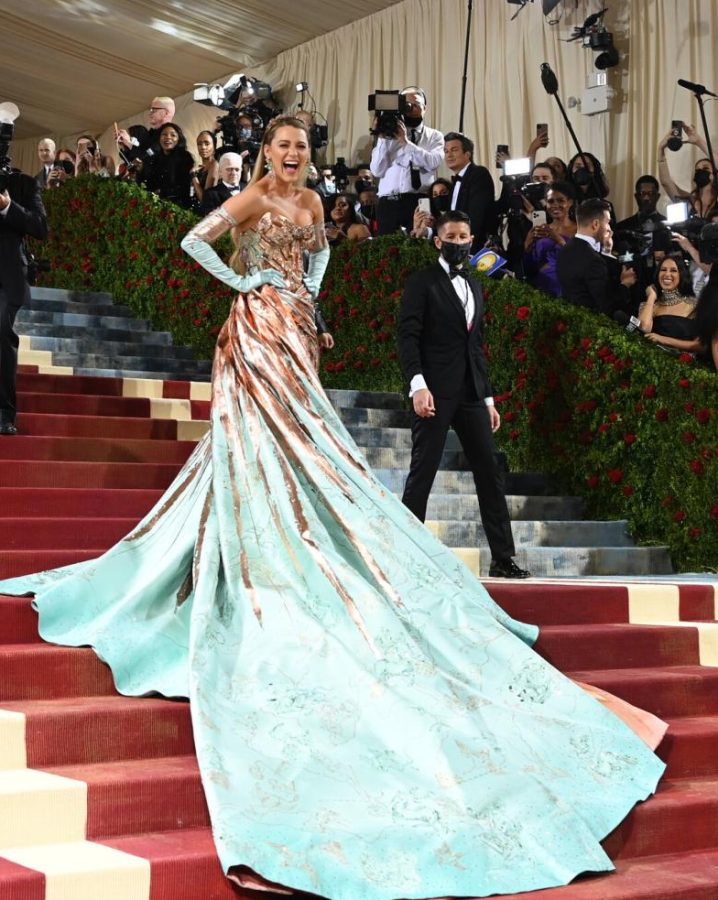Met Gala Screams “Let Them Eat Cake!”
The Metropolitan Museum of Art hosted the annual Met Gala on May 2.
On the first Monday in May each year, the rich and famous ascend the grand steps of The Metropolitan Museum of Art to attend Vogue’s annual Met Gala, an exclusive, themed event in support of the Costume Institute’s yearly new exhibit. As guests arrived this past Monday, dressed in accordance with this year’s “gilded glamour” theme, hordes of paparazzi and passersby pressed their bodies against the metal gates and climbed the city’s lampposts to catch a glimpse of the celebrity patrons, leaving some critics disconcerted at the event’s blatant show of economic inequality. Mere hours later, Politico published a story detailing the leaked Supreme Court draft opinion voting to overturn Roe v. Wade, leaving viewers to grapple with the disturbing monetary and ideological chasm between the one percent and American citizenry.
The $35,000 ticket price and required invitation casts the Met Gala as one of the most exclusive and luxurious events of the year. Established in 1948, the gala has long been the focal point of the New York City social calendar. But only in the last decade has the event started to attract worldwide media attention, largely thanks to the decision made by Vogue’s former Editor-in-Chief Diana Vreeland to invite celebrities in the mid-70s. Compounded by the rise of social media, the event has transformed from a stiff, patrician snoozefest into the star-studded fashion show it is today.
This year’s theme, “gilded glamour,” refers to the Gilded Age of the United States. Bookended by the end of the Civil War and the turn of the 20th century, the era has been portrayed by modern media as a period of extraordinary social mobility and extravagance. However, the Gilded Age was also extremely hard on the working class, members of which endured brutal working conditions and extremely low wages while wealthy monopolists got richer and richer. Sound familiar?
As celebrities donned expensive gowns and opulent jewels on this year’s red carpet, onlookers screamed from nearby street corners, waiting with bated breath to catch sight of Kim Kardashian or Blake Lively. As innocuous as red carpet fans may seem, the fact that gala personnel were videoed handing out little pieces of red carpet into the screaming crowd might remind you of the infamous statement often attributed to Marie Antoinette, “Let them eat cake!”
The hypocrisy of the Met Gala has always presented itself to the discerning eye, though in the past few years it has become far more blatant — most memorably, at the 2021 Met Gala when Representative Alexandria Ocasio-Cortez wore a dress that read, “Tax The Rich,” in bright red letters to the event while her ticket was paid for in full. This particular incident struck up a debate over whether or not the statement was inappropriate at an event where the representative consorted with those she was targeting in her critique.
While AOC’s controversial dress was certainly not the first look to stir criticism of the Met Gala, it opened the door for a continuing conversation. This year especially, many took notice of how out of touch the event has become; as Americans coped with the reality that abortions will likely become unsafe, expensive, and inaccessible, the unimaginably wealthy partied till dawn with the assurance that their money could protect them from anything.
Given the hypocritical history of the Met Gala, combined with the obvious irony of “gilded glamour,” this year’s Met Gala succeeded only in proving how out of touch it is. Blake Lively may wave a candle of openness and freedom while dressed like the Statue of Liberty, but what does that represent other than the narcissism of the modern celebrity and the blinding reality of wealth inequality in this country?











